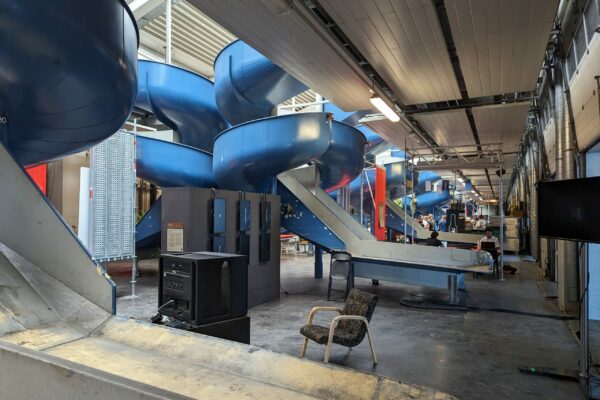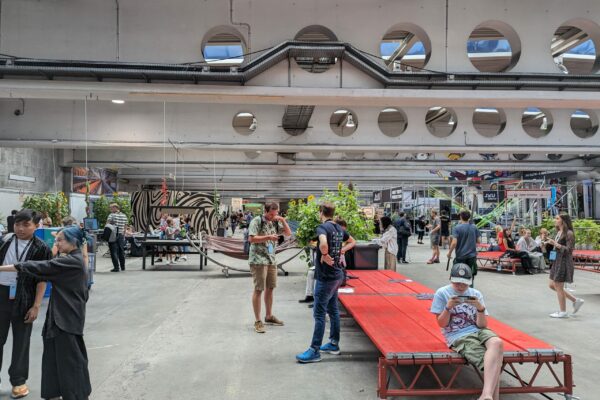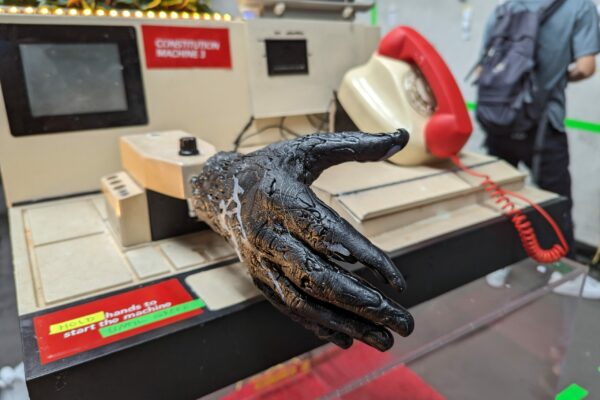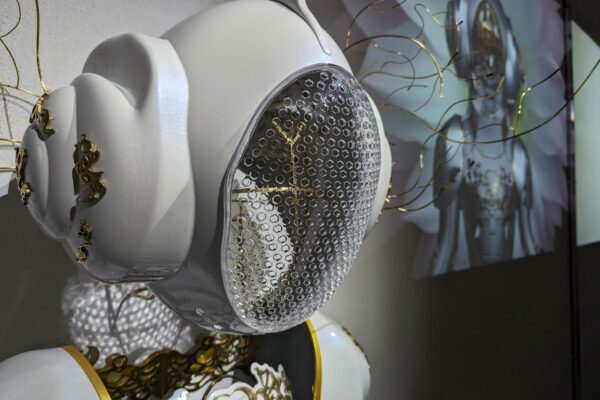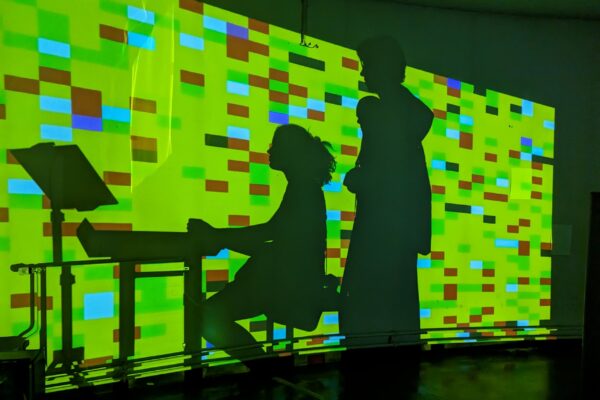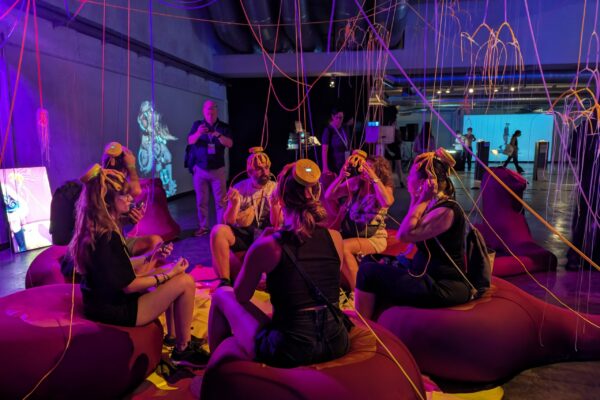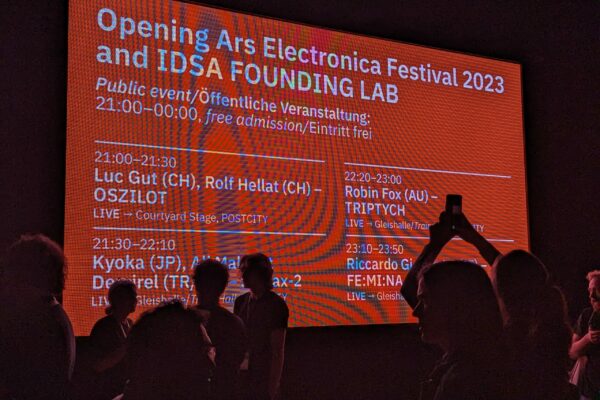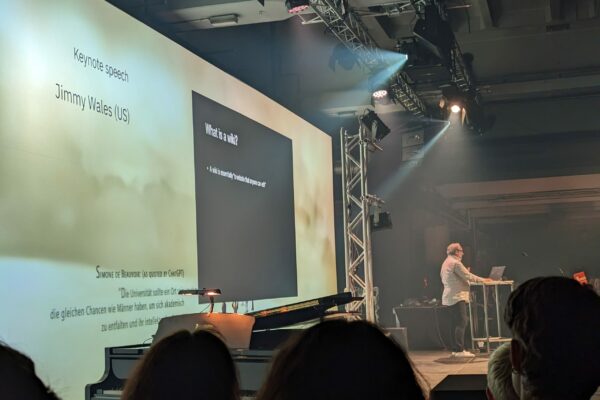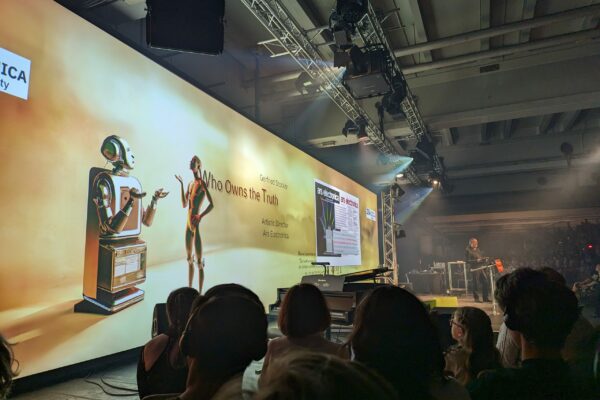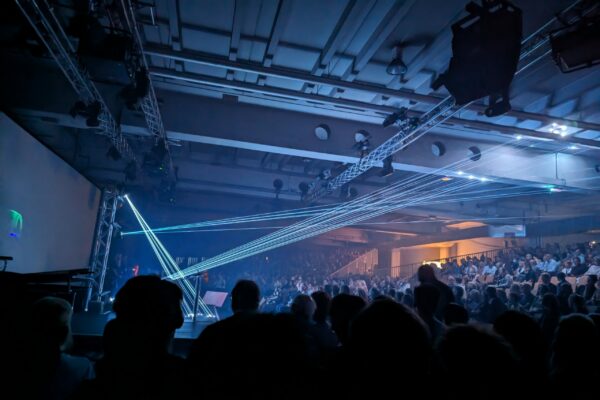In Early September, the IMPETUS team travelled to the beautiful city of Linz in Austria for our first face-to-face meeting of the project! This was a great chance to catch up and see how far we have all come in the first 12 months of IMPETUS. From the setting-up of our citizen science accelerator program and the calls for funding and the EU Prize for Citizen Science, it has been all hands on deck from the very beginning. So, at our first plenary meeting, we all had a lot of great news to share, as well as details to finalise before our first review meeting with the EU Commission later in September.
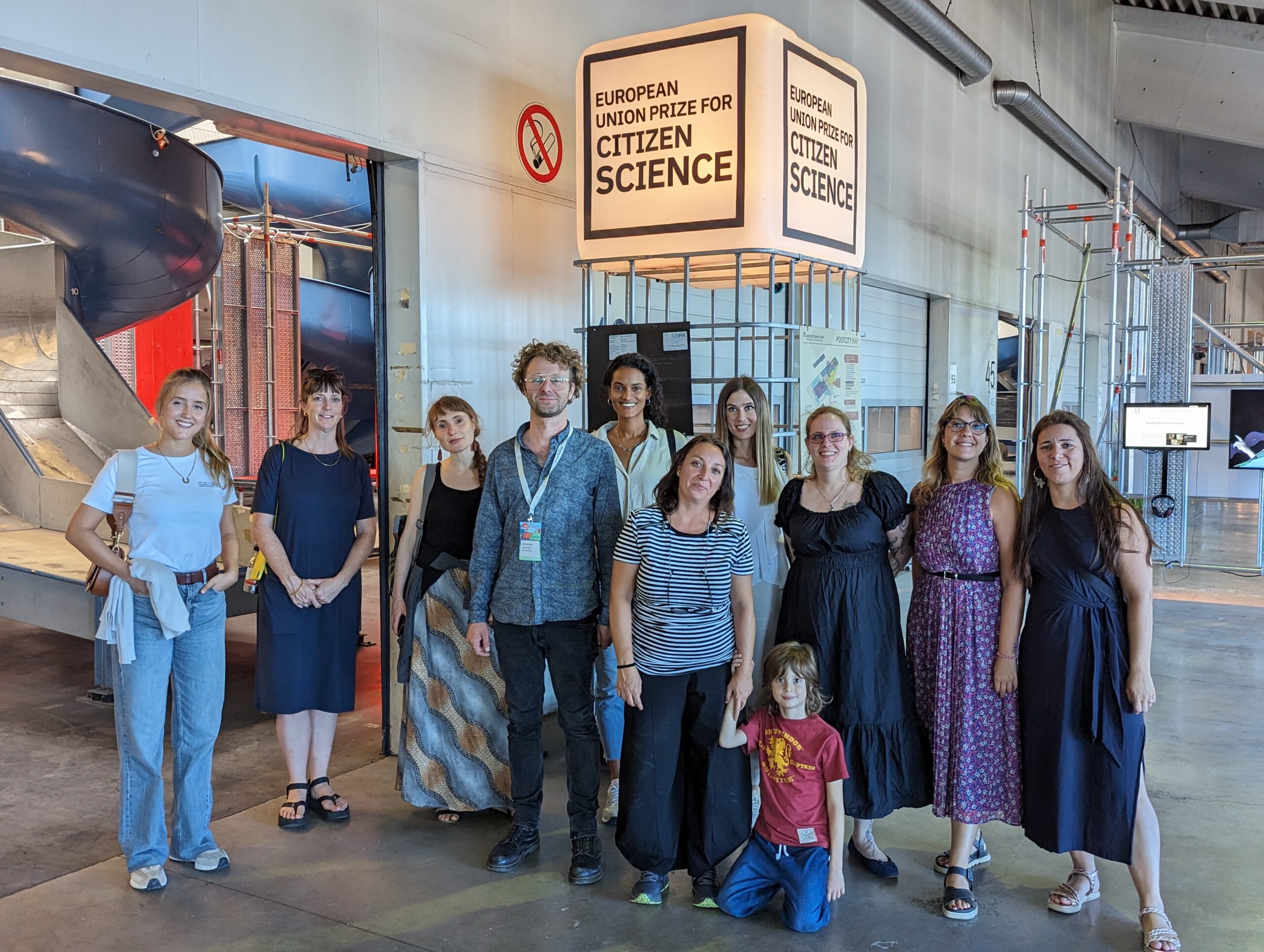
The cherry on top of this IMPETUS trip was the fact that this meeting happened the day before the annual Ars Electronic Science and Arts Festival, and the team were lucky enough to have tickets!
The theme for this year’s festival was “Who Owns the Truth?”, and it was certainly a treat for all the senses! It was located in the fantastic POSTcity, an old post-sorting station converted into a beautiful event space! Exhibitions showcased scientific innovation and research from around the world, with fungus-powered lighting, fashion that reacts to what you see, and beautiful music created by the movement of your eyes just to name a few of the attractions, all housed beneath the tubes and inner workings of the old postal office- a true demonstration of the past and future of communication!
We were also so pleased to see such an extensive exhibition recognizing the role of Citizen Science in Europe, with a whole section dedicated to showcasing the projects that won the EU Prize for Citizen Science, as well as those that received honorary mentions.
Also featuring at this festival was a creative thinking workshop organised by our IMPETUS partners from Nesta, where they explored Citizen Science Futures for Sustainability and how we can harness the potential of citizen science for the benefit of all – click here to learn more about this workshop.
After exploring the first day at the festival, the IMPETUS team attended the opening ceremony of the festival and the newly established Institute of Digital Sciences Austria (IDSA), a new home for technology and research innovations in Austria. The ceremony was opened with a beautiful light show created by Australian musician and audio-visual artist Robin Fox. We were also treated to presentations from IDSA fellows and students from all over the world as well as artistic interventions by Maki Namekawa– interweaving classical piano music with AI-created visuals, cyborg ballet from the JIZAI ARMS Team, and an inspiring opening speech by Jimmy Wales, the co-founder of the online encyclopaedia Wikipedia, about the nature of truth in times of artificial intelligence.
With so much to see, it was a true joy to behold so many creative minds coming together, but that is not all! We also were there to celebrate the great work being done by those in the Ars Electronic Community and the winners of the EU prizes for citizen science at the Prix Ars Electronica.
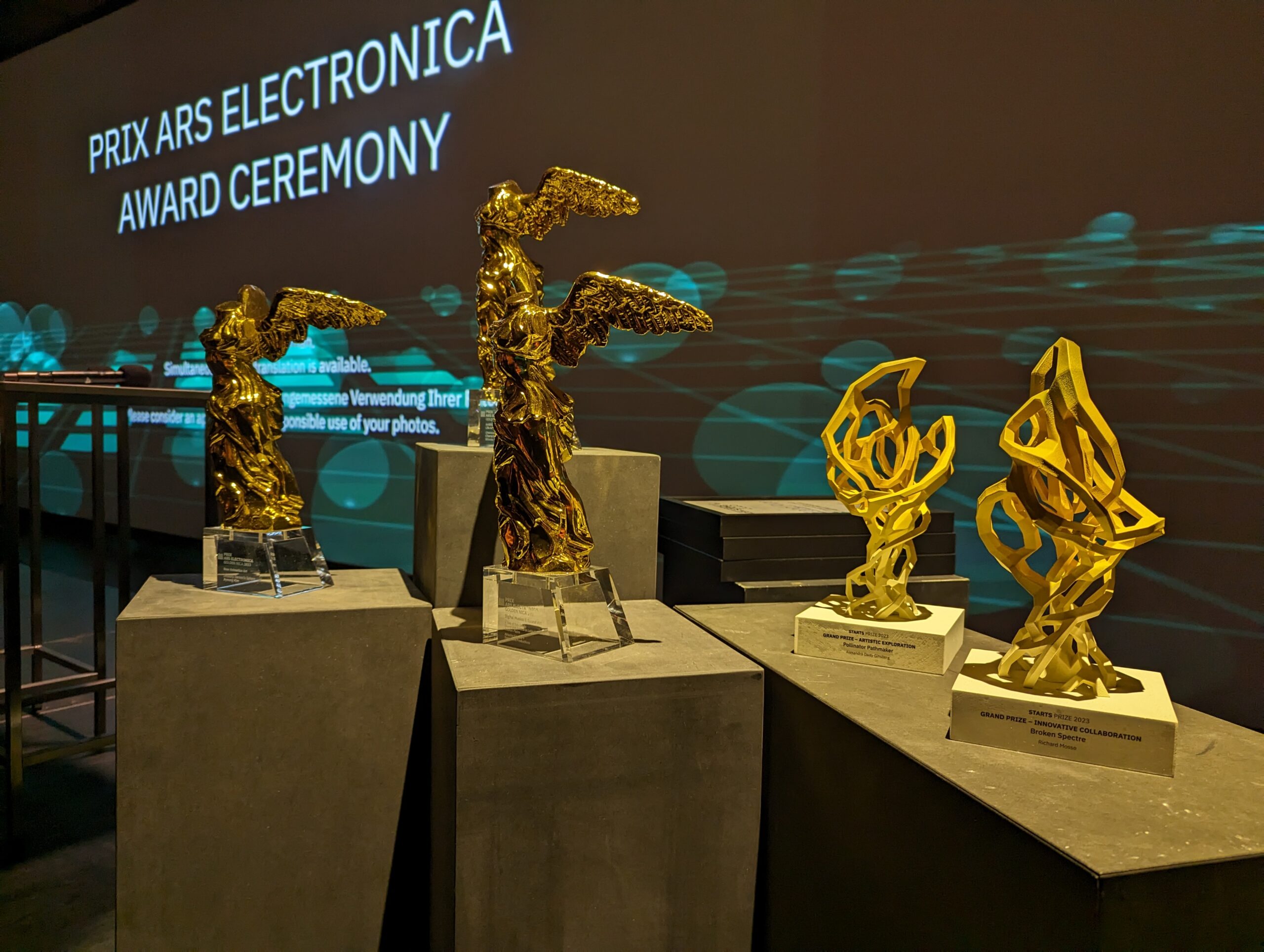
Prizes that were awarded during this ceremony included: The State of the Art(ist) presented to Mahsa Aleph for their work on Jowhar, and Taiye Ojo (And if we observe the present), the S+T+Arts awards went to Alexandra Daisy Ginsberg (Pollinator Pathmaker) and Richard Mosse (Broken Spectre). In addition to these, the winners of the new EU prizes for citizen science were also presented. Click on the links below to learn more about this year’s winners.
The grand prize was awarded to Isala: Citizen- Science Map of the Vaginal Microbiome
Diversity and Collaboration Award: Urban Belonging Project
Digital Community Award: The ReStart Project: The right to repair and reuse your electronics
Our huge congratulations to all the award winners this year, as well as to all the projects that received honourable mentions!
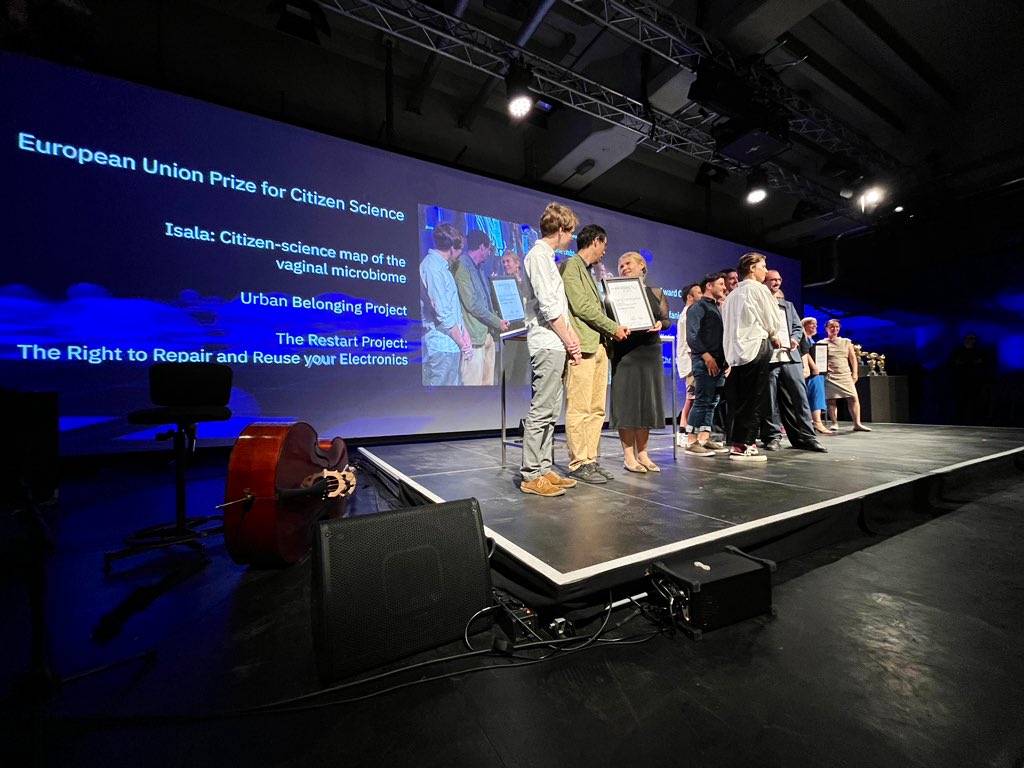
The Ars Electronica festivities continued throughout the week, with many inspiring workshops, exhibitions and lectures… but to answer the critical question posed by Ars Electronic- Who owns the Truth?…… we all do!
This is why the Impetus project is so driven to highlight the importance of citizen science in the present and future landscape of scientific research and social change. Only by working together can we create a future that is viable and just for all!

